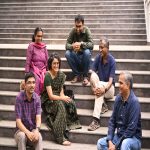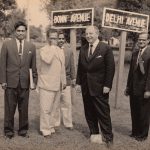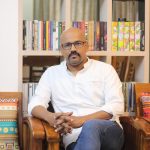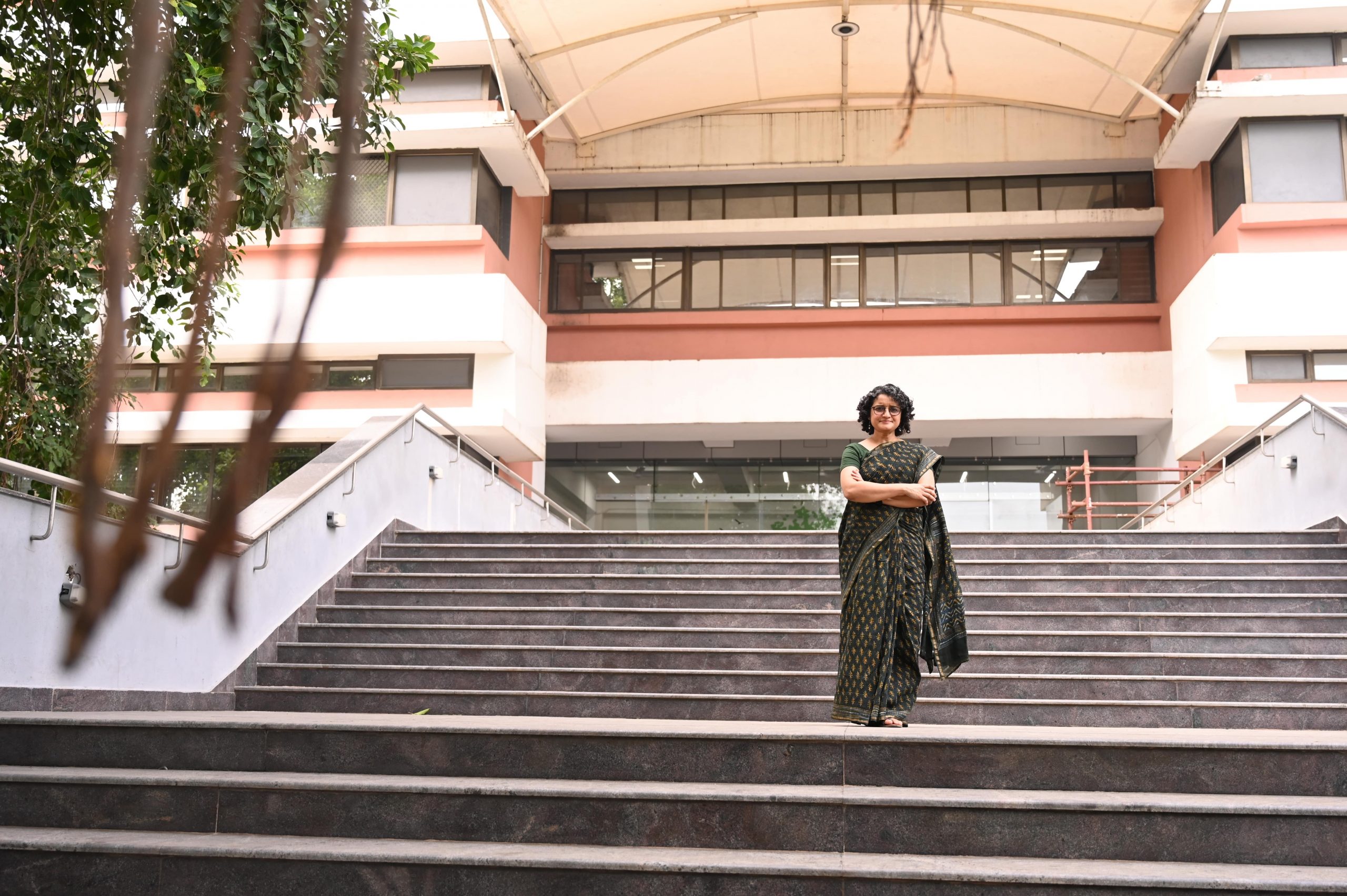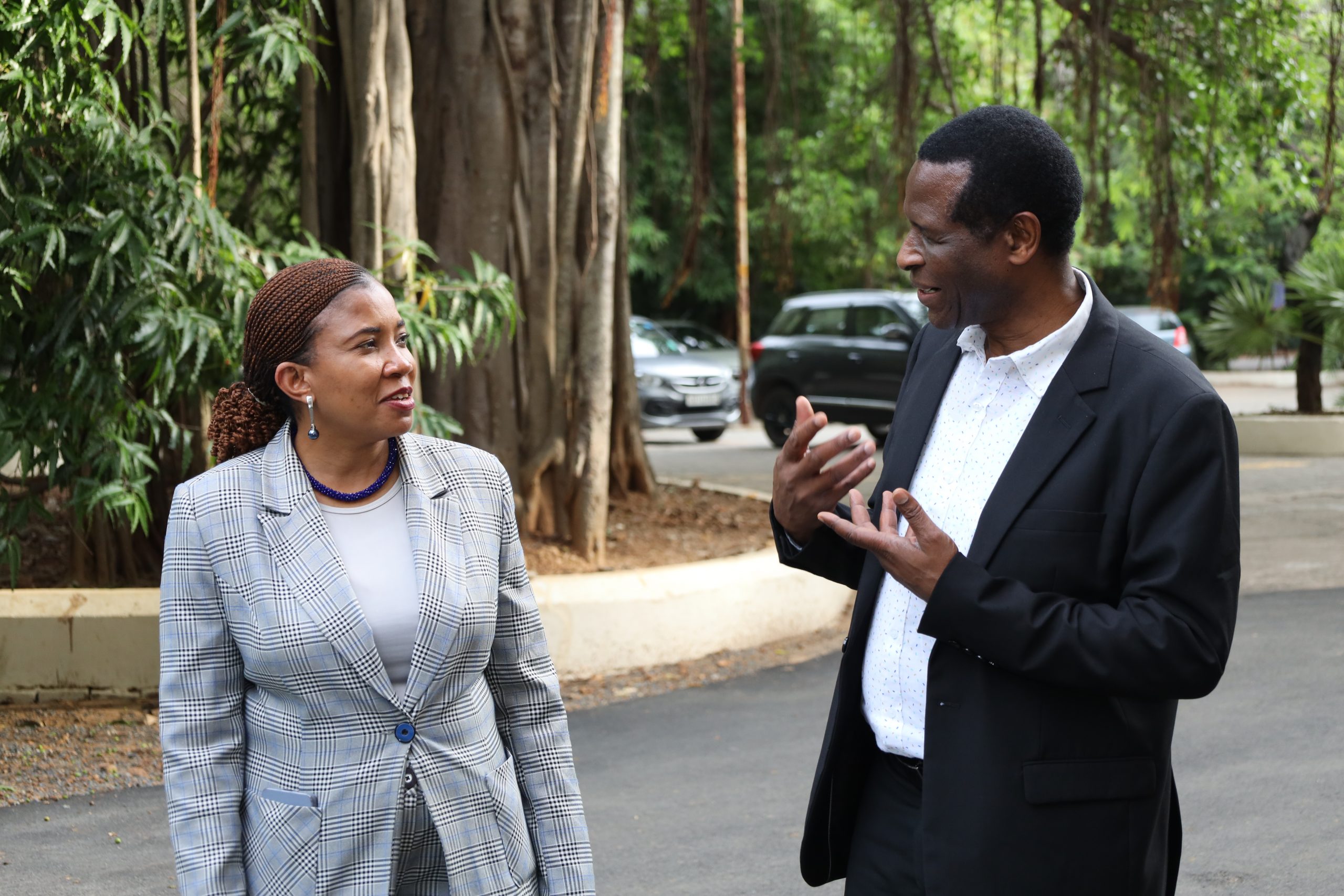While academic pursuits might have taken her to various universities including the University of Massachusetts, Massachusetts Institute of Technology (MIT) and the University of Rochester, Prof. Preeti Aghalayam, who has now been appointed as Director-in-charge of the IIT Madras Zanzibar campus,
feels that IIT-M has seeped into her blood ever since she walked into the campus way back in 1991
Srivatsan S
The first time Preeti Aghalayam stepped into IIT Madras is a day she cannot forget. It is now part of a memory that beautifully resides in a bank at the back of her mind. With her roots in Mysore, Preeti vividly recounts arriving on campus in a rickety taxi with her parents, carrying big city dreams. “We were speechless,” says Preeti Aghalayam, almost three decades later, about that day in 1991 when she was just a fresher — and long before she became an alumna and later, a faculty member of the institution.
Even after all these years, Preeti takes a moment to pause and marvel at the trees whenever she drives down Delhi Avenue. “It was so quiet and peaceful. Looking at this place back then, it gave us the feeling that one can do well in academics. That is what my parents and I thought,” she says.
“It was love at first sight,” smiles Preeti rather sheepishly. Mind you, she is referring to IIT-M, not her husband, also an alumna and whom she met on campus much later.
While academic pursuits might have taken her to various universities including the University of Massachusetts, Massachusetts Institute of Technology (MIT) and the University of Rochester, every time there was a call from IIT-M, it was a call that was hard to resist.
For, life is full circle for Preeti Aghalayam who has now been appointed as Director-in-charge of IIT’s first offshore campus in Zanzibar. Her appointment has been described in the media as “breaking the glass ceiling”, while for women in engineering and academia, it has become a joyous occasion to celebrate the spirit of representation.
Preeti, however, has been trying to dial down the attention. “I’ve been trying to tell people that it [the appointment] is a job, not an award,” she states, characteristically. In a long and elaborate conversation, Preeti discusses her decades-long association with IIT-M — from being a student to becoming the Director-in-charge — and what to look forward to, in the new campus. Excerpts:
I cannot not ask you about your JEE experience.
I am from Mysore, which still feels like a very small city. And I’m from a family of academicians; my dad was a Chemistry professor and mom was teaching linguistics at that point of time in class. I did not have a formal coaching for JEE because Mysore did not have that kind of a set-up for coaching. But I used to sit with a Maths colleague of my dad’s and also occasionally with his colleagues from Physics and Organic Chemistry departments. They also didn’t know how one prepares for JEE, but they would give me conceptual ideas.
I have been in and out of college campuses. My dad took me for my NTSE [National Talent Search Exam] interview when I was in 10th standard. Later we went to IISC, and both of us loved the campus. But when I came to IIT-M back in 1991, it felt like it has seeped into my blood since then.
This was the 1990s and it wasn’t too common for women to take up engineering at that point of time…
Not in mine because we come from a family of academicians. My elder sister is also an engineer from Mysore. Some of my older cousins studied science and engineering, and later became professional teachers. But you are right. It wasn’t very common, but in my family, it was.
When you had to come to Chennai, to IIT-M, was there any apprehension about living in a new city and away from your family?
My mom, in fact, pokes fun at me saying that I entered the hostel and never looked back [laughs]. There was no emotion, as if I was moving on and moving ahead. Growing up in a small city, I had a very protected upbringing since I’m the younger of two daughters.
More than anything, I was excited by the possibility of living by myself. In terms of academic opportunities, I was beyond excited about what IIT-M would present.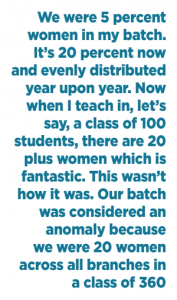
Let’s roll a few decades back. Preeti Aghalayam is a student now. What was your average day like?
I was just crazy. My friends laugh at me for how over excited and enthusiastic I was about a lot of things. In Chemical Engineering, we didn’t have labs in the second year so the rest of the departments would be very jealous of us saying, “You have the whole afternoon to sleep.”
There wasn’t even Netflix or anything at that point of time; one shady common room where one could watch some TV. But my friend and I would occasionally go to the British Council and also walk or cycle around the campus.
We would take up every Mardi Gras [later renamed as Saarang, the annual social and cultural festival of IIT Madras] related opportunity that they would give to us for second years. One of our profs said that we have to do a lot more India focused extracurricular activities. So, we organised a lot of quizzes, vernacular-only debates, and elocution. I remember going to Giggles and Scribbles [a small bookshop back then] with my girlfriends asking if they could give some small coupons as prizes for IITans.
Right from a very young age, I was into basketball and running. My school [Demonstration School in Mysore] encouraged us to take up sports. I participated in many district level running events. When I came here, I wanted to make sure that I continue sports. In fact, I remember, right from the first week on campus, I was like, “Where’s the basketball court?” One of my seniors is Shanti [from Electrical Engineering] and I glommed onto her and said, “We have to play basketball.”
When there was nobody to play basketball with and when I would have excess energy to burn, I would run till the gate and back. During my four years here, we would elbow our way into every inter-hostel sport.
I remember you mentioning about having a reunion with your friends recently. Could you talk about your batchmates, the number of women at that time, and how has it changed over the years?
We were 5 percent women in my batch. It’s 20 percent now and evenly distributed year upon year. Now when I teach in, let’s say, a class of 100 students, there are 20 plus women which is fantastic. This wasn’t how it was. Our batch was considered an anomaly because we were 20 women across all branches in a class of 360.
In the beginning, one of the batches had seven women, and if you go a little further down, for example, in Raghu’s [Rengaswamy, Dean, Global Engagement] batch, there were two women. The spread was good in our batch and somehow people kept telling us that we were anomalous and special.
About my girl friends, they have all taken different paths and are doing extremely well in their professions. Even at the reunion, they were so enthusiastic about coming to the campus, maybe more frequently.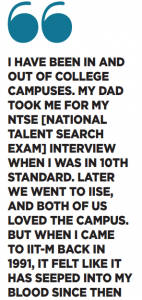
Is there a favourite memory you have as a student? I’m sure there are lots but if you could pick one, what would it be?
There is one memory that captures what IIT-M is. What happened one year during the inter-IIT tournament was, there were a lot of injuries. This is normal even now in sports. But back then, one of the professors from the Aerospace Department, who was our sports advisor, said, “Let’s stop contact sports for women.” I hadn’t even heard that word before but I figured that it means no more basketball.
I was livid. I sat outside his office and said, “I cannot let you do this.” I don’t know why it meant so much but somehow I felt it was so wrong to make a rule like pulling a horse out in the middle of the race. Also because I was 18 and rebellious.
But what I really appreciate, though, is when I went to him and very passionately and probably over-emotionally, made the case, he was so good about it. I don’t exactly remember what he said, but he didn’t go forward with the rule. So, I think that typifies IIT Madras.
That, we have the best interests for students at heart. Although, I mean, there are generation gaps and our world is different from theirs but we are open. We listen. We listen to students and try to accommodate different viewpoints.
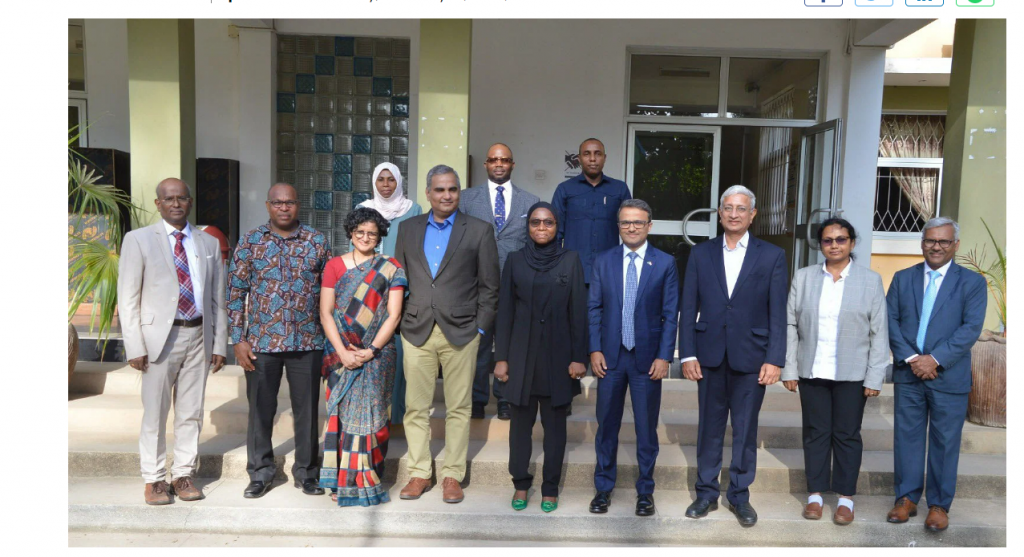
After you earned a B.Tech, you did a PhD and worked briefly at IIT Bombay. Later when you came back to IIT-M as a faculty, what were some of the aspects that you brought to your teaching?
First of all, I love teaching. I think it feels so satisfying to be a teacher. It’s stressful, by the way, even today. My family makes fun of me because they ask me why I still prepare for classes. I’ve seen my dad do it. After teaching Chemistry for 35 years, one can expect him to walk into the classroom with his eyes closed and be able to write whatever that is missing on the board. But I saw him every day thumb through the books and made new notes. This is what I do as well.
Monday morning 8am classes are religious for me. I have picked up many things from all my academic experiences including this textbook. It’s a very basic Chemical Engineering textbook. When I left MIT, even though I was there only for a year-and-a-half, they saw how passionate I was and gave me this book, which has an inscription by my guide.
So methodology-wise, a little bit from various universities I have been to [MIT, University of Rochester, University of Massachusetts]. There is science and methodology behind teaching. This is what I have grown up with and imbibed from other places.
The important thing I believe is the interaction between faculty and students and not creating any barrier where none is needed. In recent times we have been doing some game-based learning and small activities for the class that will help them realise this interaction in a more practical way.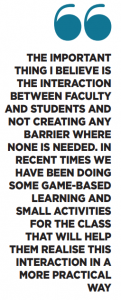
Before you joined the Office of Global Engagement as an Advisor, at what point during your teaching career, did you warm up to the idea of ‘internationalisation’?
It was absolutely only after being in the Office of Global Engagement. Before that I have participated in a lot of non-department, non-teaching type of activities in the institute. But I did not have any particular exposure to international students. In fact, now it has really exploded, even our international visits. It wasn’t this many earlier. We have at least two visitors a day.
Of course Raghu and I go a long way back. Our paths didn’t cross that much when we were in IIT Bombay. But it was only after he called and asked me to work as the Advisor that I had any exposure to this. Plus, it has been really intense the past couple of years because post-Covid, things opened up in a really dramatic way.
It’s mind-boggling if you look at the number of trips we had taken to Sri Lanka, Nepal and even to the US. Of course, Africa was the one that sort of solidified in a very dramatic fashion.
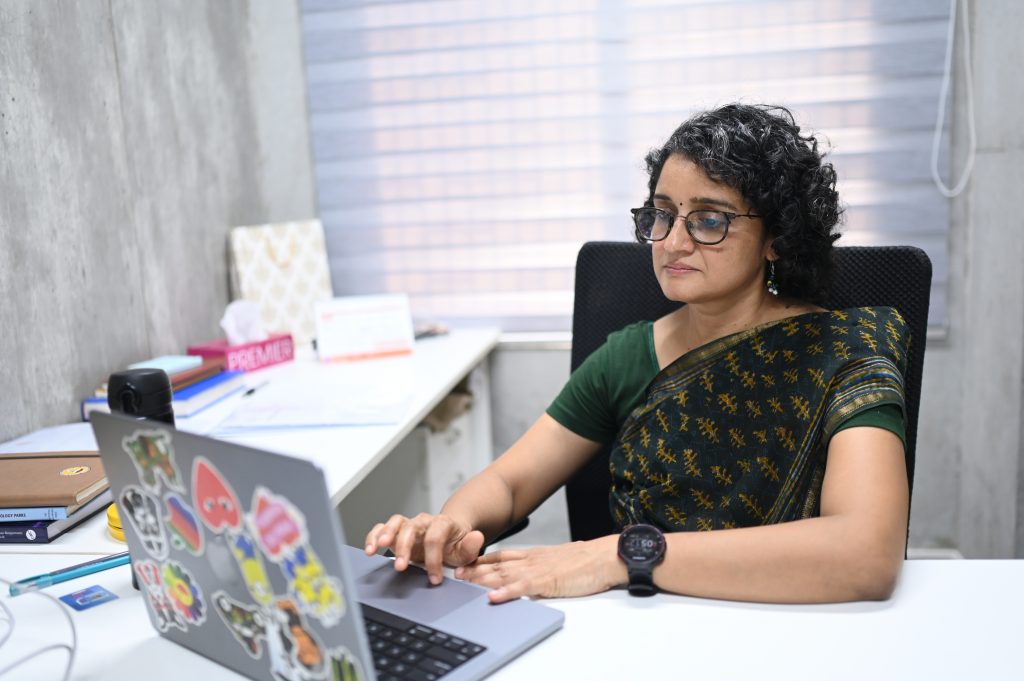
Does this stamp — of being the first “woman” Director — bother you or have you come to terms with it?
It didn’t bother me but it feels like a big burden. This is what I sometimes try to tell people: this appointment is a job, not an award. It’s a job that I’m really excited about. To be honest, I hadn’t thought about it till the whole woman Director thing blew up. It is a job I would be really excited to do even if I was a man [laughs].
While I do believe that we should have equality, not just in gender, but in other aspects as well, I think in academia, we are all very similar. So it feels like all these barriers are fake or false. If you see our training, there is no difference between the way, um, women
professors train or are trained from men. Likewise our students and researchers.
I mean, yes, there are aspects like physical safety. And experiences for men and women are not always identical. But within the walls of this campus, it can be. I believe in that. While one has to be conscious about gender equity and not just assume that it’ll happen in due course of time and make efforts to achieve that, I also believe in the fact that, as academicians, we should work hard at gender equity.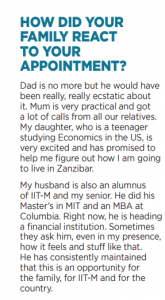
How has the reception been for admissions at IIT Madras Zanzibar?
It has been very good. We started things late in the cycle. We are also simultaneously recruiting faculty and the responses have been phenomenal. It’s been lovely to interview candidates and it’s been lovely to see a very good gender mix – both in the student and faculty talent pool.
Apart from East Africa, Ethiopia, Kenya and Tanzania, where we have students from these countries studying at IIT-M, we have been getting a lot of questions from other parts as well. The interest has been phenomenal. Locally also, in India, parents and students have been reaching out which is very heartening.
Aside from what people have been saying about the Zanzibar campus outside, the kind of reception we have been getting from faculty within IIT-M has also been heartening. So many faculty members from various departments have enthusiastically said that they will help us out.
For someone to come all the way from Mysore, to study at IIT-M and then become a faculty member, and now getting to head IITs’ first international campus, it does feel like a long journey. If there is something you wish to tell that 20-something Preeti Aghalayam, what would it be?
Right now, when I am talking to you, I feel I’m the same over enthusiastic, jump-at-everything Preeti. So it doesn’t feel like that has changed. But it has been a long journey with pregnancy, childbirth and raising a teenager among other things. Sometimes it has felt hard because our work itself is such that it doesn’t start at 9am and finish by 6pm. There are so many things we do and it’s very difficult to compartmentalise. And there are many threads to keep track of, aside from home, family and friends. So yeah, the thing I would tell my younger self, even though it feels strange, is to be myself and believe.
